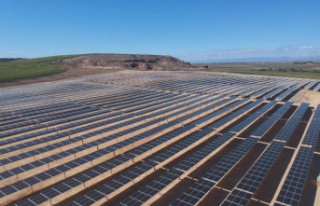MADRID, 19 Ene. (EUROPA PRESS) -
Total factor productivity (TFP) in Spain has accumulated a decline of 7.3% from 2000 to 2022, a figure that contrasts with the double-digit advances recorded in the United States or Germany, where productivity grew in this period. same period 15.5% and 11.8%, respectively.
This is reflected in a study by the BBVA Foundation and the Valencian Institute of Economic Research (Ivie) published this Friday, which also confirms that after the 2007 recession, productivity in Spain registered a "modest improvement" cumulatively of 1, 2% between 2013 and 2019. This change in trend was altered by the outbreak of the pandemic, since in 2020 the productivity of all factors fell by 5.1%.
However, after the pandemic, this indicator grew again, a cumulative 2.8% between 2021 and 2022, "recovering more quickly than after the previous crisis," according to the study.
In any case, despite this "positive" change in trend, the decline in productivity since the beginning of the century contrasts with the figures of the European Union and is explained by an "unfavorable" evolution of the productivity of labor and capital in Spain, the authors of the report point out.
Thus, labor productivity, calculated by dividing GDP by the total hours worked by those employed, grew less in Spain than in other countries: the annual average is 0.7% since the beginning of the century, compared to 1.1% registered by the EU as a whole or 1.4% of the United States.
At the same time, capital productivity, defined as the added value generated per unit of available capital endowments (machinery, technological equipment, real estate, public and private infrastructure), registered an average decrease of 1.2% annually between 2000 and 2022. because the accumulated investment advanced more than the added value generated, the study states.
According to the report, the 'real estate boom' still represents a "drain" for the productivity of capital.
The BBVA Foundation and the Ivie point out that although the joint productivity of the factors grew by 1.2% after the end of the great recession (2013-2019) and 2.8% after the pandemic (between 2020 and 2022), " "These improvements are not sufficient to converge to European average levels of productivity."
The report warns that the lack of progress in productivity "slows down" the growth of GDP per inhabitant and "widens" the gap with countries that do improve efficiency: the distance between Spain and the EU-27 in income per inhabitant has grown from 2.4% in 2000 to 14.4% in 2022.
According to the study, there are several reasons that explain Spain's low levels of productivity since the beginning of the century and that represent "an important weakness in its growth pattern."
"It is weak, first of all, because the TFP trajectory maintains levels of productive efficiency below those of the last century, despite the effort to accumulate physical and human capital over the last three decades. The use of more quantities of labor and capital has contributed to Spain's GDP growing, but improvements in the productive use of these factors could also contribute to GDP growth and that has not happened during the years of the boom and the great recession," the report explains. .
Secondly, the authors add, the growth pattern is "weak" because the low productivity of capital reflects an "excessive" accumulation of real estate assets - residential and non-residential - during the 'boom', which "are still partially used by the companies that own them and hinder productivity.
Thirdly, other reasons that explain Spain's low productivity are that investment in assets that should contribute to boosting productivity, such as ICT and intangibles, "advances at a slower rate than in other economies."
To analyze the evolution of Spanish productivity and propose possible ways for improvement, the BBVA Foundation and the Ivie have launched the Observatory of Productivity and Competitiveness in Spain (OPCE).
The initiative includes the creation of a database that will be periodically updated with information on capital, labor and TFP productivity.
"Spain, Italy and Estonia are the only countries in the euro zone that have not yet created a National Productivity Council, as recommended by the EU in 2016, despite the fact that their problems in this field have been demanding answers for several decades," he concludes. The report.













